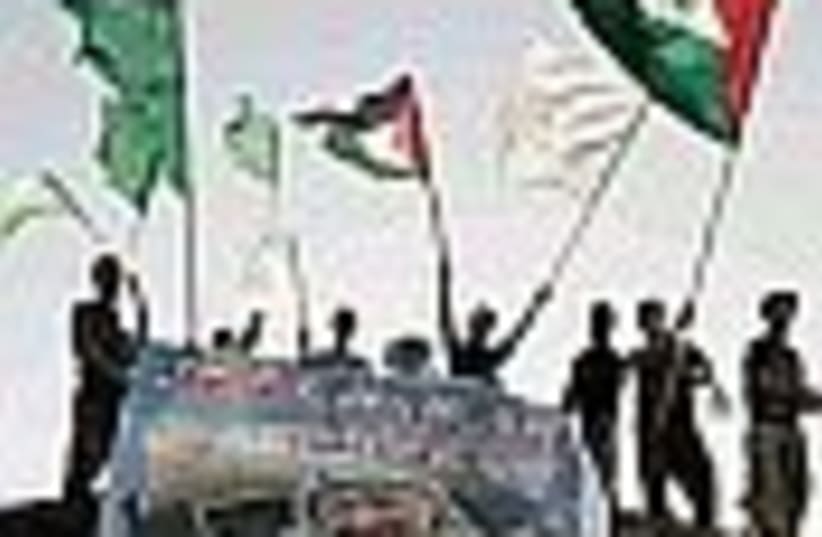| JPOST.COM HIT LIST | |
| JPost.com's most popular articles this past week |
Helping Palestinians
All-Hamas cabinet has been widely billed as technocratic. Yet its main characteristics are inescapable.


| JPOST.COM HIT LIST | |
| JPost.com's most popular articles this past week |